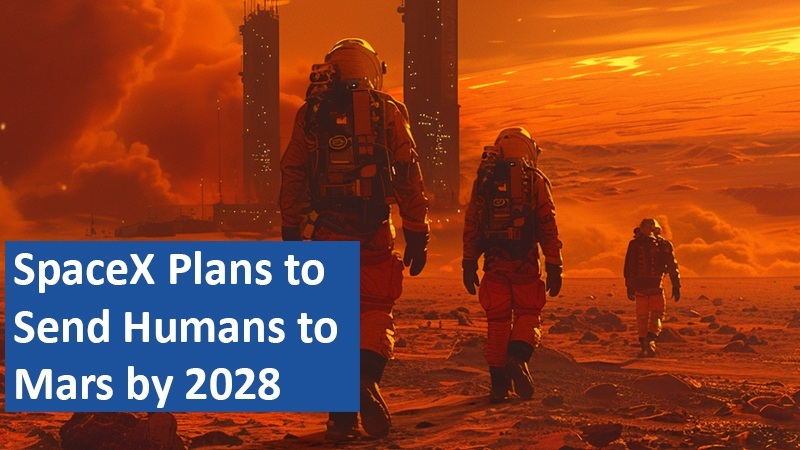SpaceX, Elon Musk’s private space company, has announced its ambitious goal to send the first humans to Mars by 2028. The mission aims to lay the groundwork for the permanent colonization of the planet. Despite health concerns raised by studies on the potential damage from space travel, SpaceX is moving forward with plans for a manned mission. This follows Musk’s long-standing vision of making humanity a multi-planetary species.
By Julian James
Five Unmanned Missions Before the Human Journey

Before launching a crewed mission to Mars, SpaceX has planned five unmanned missions to the Red Planet over the next two years. These missions will help gather critical data and test the systems required for human travel. The timing of the missions is limited by Mars’ position relative to Earth, as the planets align for optimal travel only every two years. If these initial missions are successful, the crewed mission will proceed in 2028, according to Musk’s projections.
The Dream of Mars Colonization
Elon Musk’s vision for Mars extends beyond a single mission—he hopes to establish a permanent human settlement. He has expressed that his ultimate goal is to make humanity “sustainably multiplanetary,” ensuring our survival beyond Earth. Musk envisions a future where Mars becomes home not only to scientists and explorers but also to regular tourists. His dream is to create a thriving human presence on the planet, with frequent travel between Earth and Mars becoming a reality.
Challenges and Risks in the Mission
Although Musk’s vision is grand, significant challenges remain. Studies have shown that prolonged space travel could result in severe health risks, such as permanent kidney damage and exposure to cosmic radiation. Musk has acknowledged these risks, stating that future technologies will need to focus on sustainability and self-sufficiency for those living on Mars. The possibility of global crises on Earth, such as pandemics or nuclear wars, could also disrupt supply chains, making it crucial for Mars colonies to become self-reliant.
A Bold Step for Humanity
Elon Musk’s vision of humans living on multiple planets is slowly becoming a reality. SpaceX’s long-term plan includes exponentially increasing the number of spacecraft traveling to Mars, making it possible for thousands of people to visit or live on the Red Planet. With the first human mission now set for 2028, Musk’s dream of colonizing Mars could soon become one of the most remarkable achievements in human history.
SpaceX’s plans for Mars mark a significant leap toward realizing Elon Musk’s vision of a multi-planetary future. While the mission comes with considerable risks, the potential for colonizing another planet could transform the future of humanity. If successful, this endeavor will be a groundbreaking moment in space exploration and human history.
Based on information from www.forschung-und-wissen.de and own research.